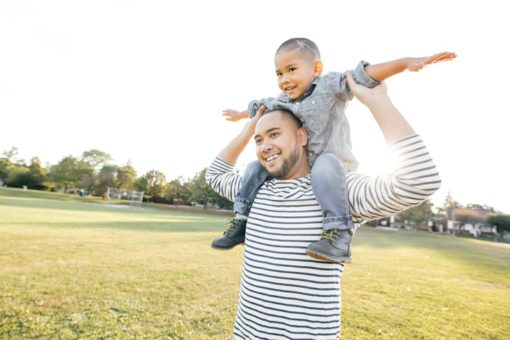
The first week of October is Mental Health Awareness Week, where communities come together to educate and spread awareness about the importance of mental health to reduce the stigma and barriers associated with access to treatment. Psychological health prevention begins in childhood. Children are prone to trauma, bullying, and other stressful triggers that could lead to mental health disorders later on. Additionally, children themselves are not immune to mental health disorders. Talking about mental health with your child is essential.
“There are some of the warning signs of suicide and depression: declining school performance, loss of pleasure in social activities, changes in appetite or sleep, agitation or irritability, and substance abuse,” explains Center for Adolescent Research and Education director Stephen Wallace. “Just as we teach our children to look both ways before they cross the street or to brush their teeth before bedtime, we need to arm them with the truth about depression and suicide.”
Make the relationship between mental health and physical health
Talking about mental health with your child and initiating these conversations is essential early on. Allowing children to express their emotions and feelings early on is healthy, and making sure you choose an age-appropriate language is key. It is crucial for children to understand that just like how cancer and broken bones affect the body, mental illness affects the mind. By making this comparison, children may be able to understand better how a family member is experiencing their particular illness and how they can be treated to get better.
Describe symptoms in age-appropriate ways
Of course, talking about mental health with an 8-year-old compared to a 13-year-old will require different wording. Instead of quoting statistics, studies, or using medical language, tell a relatable scenario. Talk about how that one time when Mommy was sad and explain that sadness does happen, but when people are said all the time, this may be depression.
Answer all their questions
Kids are curious, and as parents, it is crucial to clarify and be honest when answering their questions. Maybe they saw something at school or on television that was related to mental health, and they are curious about it. It is essential to answer questions the best you can. If you do not know some of the answers, it is okay to research these. Asking your family or your doctor is also a solution.
Start with a children’s book on mental illness
Maybe you do not know how to start the conversation or are anxious about talking to your kids about mental health. If this is the case, start reading to your kids about mental illness. The following are a list of children’s books that focus on mental health:
- “Up and Down the Worry Hill” by Aureen Pinto Wagner, Ph.D.
- “Michael Rosen’s Sad Book” by Michael Rosen
- “Helicopter Man” by Elizabeth Fensham
- “The Princess and the Fog” by Lloyd Jones
- “Why is Dad So Mad?” by Seth Kastle
- “The Bipolar Bear Family” by Angela Holloway
- “Finding Audrey” by Sophie Kinsella
- “Every Last Word” by Tamara Ireland Stone
Kristen Fuller, M.D., is a clinical content writer and enjoys writing about evidence-based topics in the cutting-edge world of mental health and addiction medicine. She is a family medicine physician and author, who also teaches and contributes to medicine board education. Her passion lies within educating the public on preventable diseases, including mental health disorders and the stigma associated with them. She is also an outdoor activist and spends most of her free time empowering other women to get outside into the backcountry.
